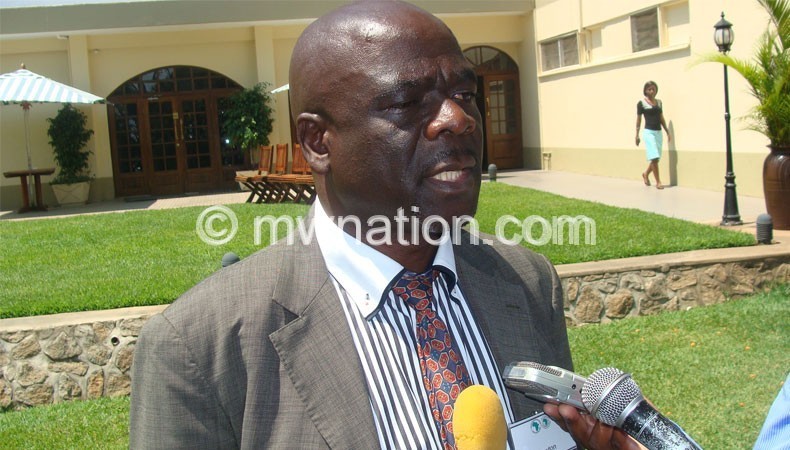Zero coupon bonds to improve firms’ liquidity
Government’s plans to issue zero coupon bonds to contractors and suppliers owed K158 billion in arrears will avail working capital to the private sector to contribute to the success of the 2014/15 zero-aid budget.
Malawi Confederation of Chambers of Commerce and Industry (MCCCI) and Bankers Association of Malawi (BAM) believe this is one of the best ways to propel the economy on its path to recovery and creation of jobs.

Minister of Finance, Economic Planning and Development Goodall Gondwe told Parliament last week government has reviewed the policy on settlement of arrears and will this fiscal year issue zero coupon bonds also known as discount bonds, to suppliers owed money by government.
A zero coupon bond is a debt security that does not pay interest (a coupon) but is traded at a deep discount, rendering profit at maturity when the bond is redeemed for its full face value.
Gondwe said they have had extensive discussions with Reserve Bank of Malawi (RBM), MCCCI and BAM on the issuing of bonds, observing that this arrangement will enable those owed to discount the bonds with commercial banks to access the money and improve their liquidity.
“This is a welcome development. It will ensure that we get the economy moving again. As you know, it is the private sector that will finance this year’s budget in the absence of the donors,” said MCCCI president Newton Kambala, in a telephone interview.
“This will ensure that the private sector is not running around looking for money for their business.”
When presenting the 2014/15 budget in early September, Gondwe announced that government will pay K50 billion of the arrears it owes the private sector and that the balance will be paid over a period to be agreed with the claimants.
But the minister last week said the introduction of zero coupon bonds means that government will not provide money in this year’s budget for the settlement of arrears, saving the allocated sum in the budget.
“Therefore, it is planned that some K10 billion from the arrears allocations should be used to fund other activities. We have already used K10 billion to pay arrears to various companies,” he said.
Gondwe said government will only settle zero coupon bonds in the coming two years rather than this fiscal year.
“In view of this, we will soon engage the services of private auditors to audit all arrears within the shortest period practically possible.”
In a joint statement, BAM president Misheck Esau and executive director Lyness Nkungula said all the country’s banks are ready to work with government and the private sector in discounting the bonds.
“BAM believes that the bonds once discounted by banks will provide the much-needed working capital to the private sector which in some cases has been denied them for a number of months, if not years,” said the statement.
Earlier, Kambala wondered whether government’s call for the private sector to grow the economy were genuine when it is owed billions of kwacha in arrears, saying their investments, as the engine of economic growth, will be crippled if government does not pay the arrears.
In the wake of the Cashgate—the systematic looting of public funds at the Capital Hill, the headquarters of government—the country’s bilateral donors withheld budget support which constituted about 16 percent of the 2013/14 recurrent budget and 11 percent of the total budget.
As a consequence, the ability of government to function was crippled and unbudgeted domestic borrowing of K121 billion was incurred and the stock of domestic debt as at May 31 2014 climbed to K340 billion.
Government has since assured that it will make the restoration of fiscal discipline a cornerstone in which no controlling officer will be expected to accumulate arrears without suffering the punitive consequences of the Public Finance Management Act.





